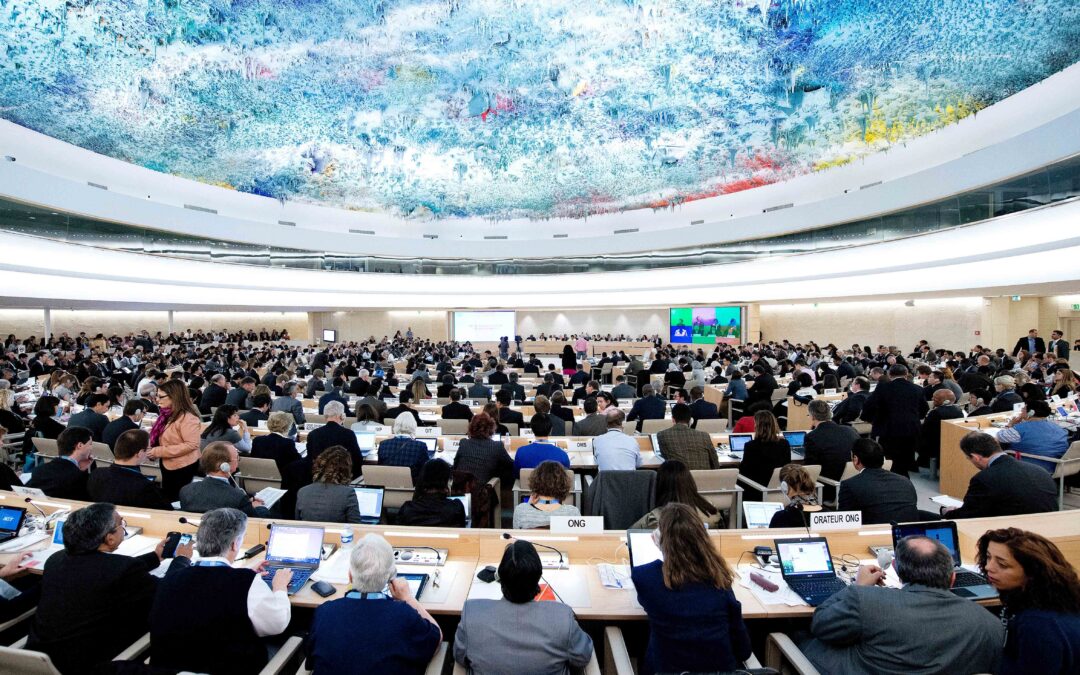
Jul 5, 2021 | Advocacy, Non-legal submissions
The ICJ today addressed the UN Human Rights Council in the Interactive Dialogue on the report of the UN High Commissioner for Human Rights on the situation of human rights in the Bolivarian Republic of Venezuela.
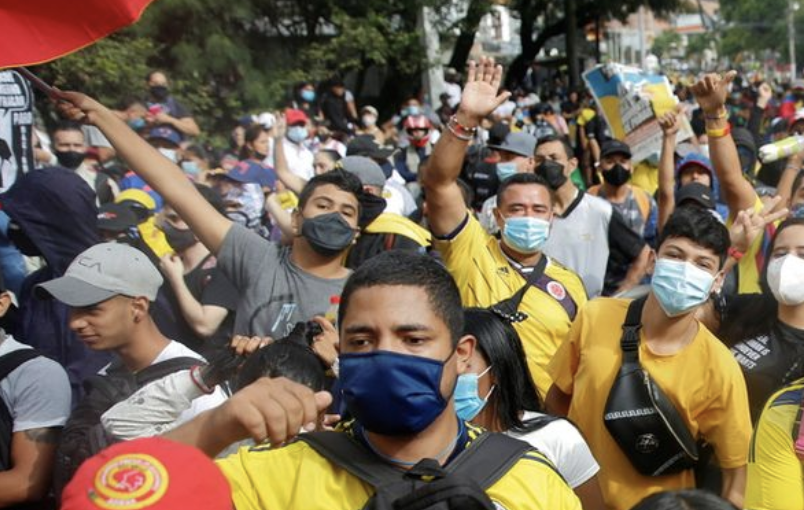
Jul 1, 2021 | Incidencia, Multimedia, Noticias
Hoy, la CIJ y la Comisión Colombiana de Juristas pronunciaron declaraciónes orales en los diálogos interactivos con les Relatores Especiales sobre las ejecuciones extrajudiciales, sumarias o arbitraria y sobre los derechos a la libertad de reunión pacífica y de asociación.
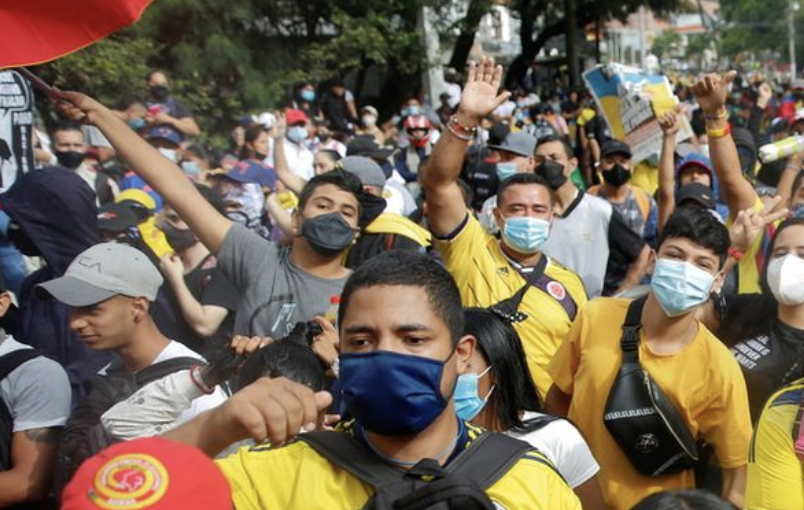
Jul 1, 2021 | Advocacy, Non-legal submissions
The ICJ and the Colombian Commission of Jurists today jointly addressed the UN Human Rights Council in the Interactive Dialogues on the Reports of the UN Special Rapporteur on extra-judicial, summary or arbitrary executions and the UN Special Rapporteur on the rights to freedom of peaceful assembly and of association.
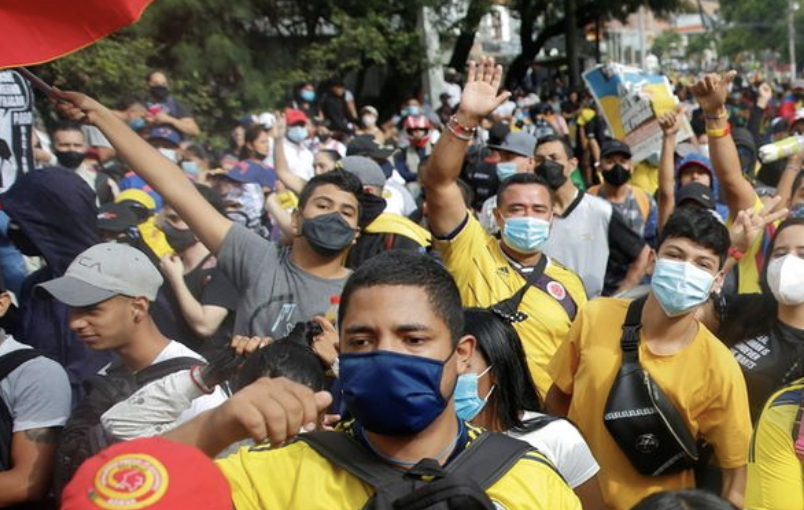
Jun 23, 2021 | Incidencia
La CIJ y 300 organizaciones de la sociedad civil, presentaron una declaración conjunta ante el Consejo de Derechos Humanos de Naciones Unidas expresando su preocupación sobre la situación de derechos humanos en Colombia, en el marco de la presentación del informe anual de la Alta Comisionada de la ONU para los Derechos Humanos.
Aqui sigue la declaración oral conjunta:
“Gracias Sra. Presidenta,
En nombre de las varias organizaciones firmantes, agradecemos el reporte de actividades de la Alta Comisionada, particularmente sobre Colombia. La situación en el país confirma la necesidad de continuar el monitoreo y la asistencia técnica de su oficina.
A ocho semanas de las jornadas de movilización en distintas ciudades del país, los asesinatos, el uso excesivo de la fuerza, los actos constitutivos de tortura y otros malos tratos, las desapariciones forzadas, la violencia sexual, las detenciones arbitrarias y los ataques, incluidos los ciberataques contra quienes ejercen su derecho a protestar constituyen flagrantes violaciones de derechos humanos. Los abusos se producen a pesar del fallo de la Corte Suprema de Justicia, que insta a la Fuerza Pública a no actuar de manera violenta, arbitraria y sistemática durante las manifestaciones y los llamamientos de mecanismos de derechos humanos a cesar estas violaciones.
Las protestas se vinculan a reivindicaciones estructurales ligadas a los derechos humanos, incluyendo la pobreza, la desigualdad, injusticias sociales crecientes, la impunidad, el racismo sistémico y la violencia sistemática contra las personas defensoras de derechos humanos, incluyendo líderes sociales, campesinas, sindicales e indígenas y la prensa. También se deben a la falta de la plena implementación del Acuerdo de Paz de 2016.
Exhortamos al Consejo a exigir a Colombia el cese del uso de violencia y el respeto del derecho a la protesta pacífica; a que investigue de forma independiente las violaciones a los derechos humanos cometidas en este contexto; a que acepte la visita de los procedimientos Especiales y a que apoye el logro de consensos sociales en torno a las demandas estructurales.
Finalmente, solicitamos a la Alta Comisionada, que por medio del monitoreo de su oficina en Colombia, elabore un reporte sobre las violaciones de derechos humanos cometidas durante las protestas.
Gracias Sra. Presidenta.”
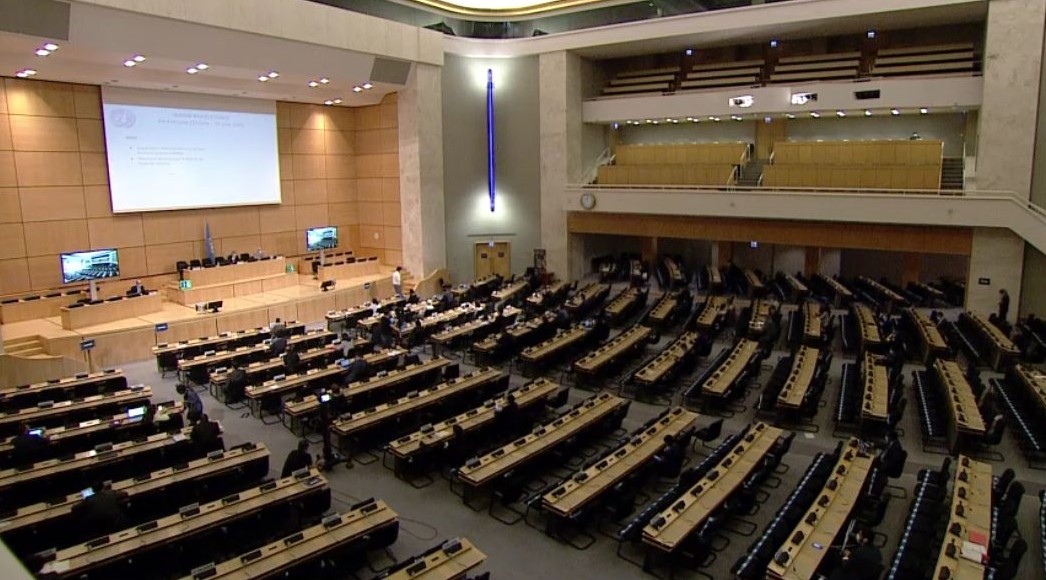
Mar 11, 2021 | Incidencia
Hoy, la CIJ pidió à la Oficina de la Alta Comisionada para los Derechos Humanos de asegurar transparencia y participación de sus actividades en Venezuela, durante el dialogo sobre la actualización oral de Alta Comisionada para los Derechos Humanos sobre la situación en Venezuela
Aqui la Declaración Oral:
“Señora Presidenta,
La Comisión Internacional de Juristas agradece la actualización oral de la Alta Comisionada sobre la situación en Venezuela, particularmente respecto de la cooperación entre su oficina y las autoridades venezolanas.
La CIJ subraya la importancia de la transparencia en las actividades realizadas bajo el Memorándum de Entendimiento (MDE) firmado por ambas partes. La publicación del MDE para informar al público y asegurar el óptimo involucramiento de las partes interesadas, es fundamental para su éxito.
La CIJ enfatiza que además de los derechos civiles y políticos, los derechos económicos sociales y culturales continúan siendo violados en Venezuela; esta situación se ha visto agravada por la pandemia de COVID-19. En enero de 2021, al menos 37 trabajadores habían fallecido debido a la falta de equipos de protección y suministros básicos en los centros de salud.
Además, a la luz de los recientes anuncios de autoridades venezolanas, parecen existir consideraciones políticas en las prioridades del plan de vacunación contra la COVID-19, en lugar de criterios objetivos y de salud pública, lo que podría dar lugar a discriminación y denegación de igual protección ante la ley.
La CIJ recomienda que la Alta Comisionada monitoree y reporte sobre el cumplimiento de sus recomendaciones previas que fueron realizadas a las autoridades estatales, así como sobre el involucramiento más amplio de su oficina con organizaciones de la sociedad civil local, con miras a proteger los derechos humanos
Gracias.”
Contact:
Massimo Frigo, ICJ UN Representative, e: massimo.frigo(a)icj.org, t: +41797499949









